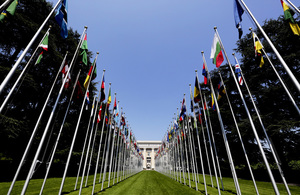UK Government helps more than 57,000 businesses in Wales
-
More than 55,000 loans worth more than £1.5 billion have been offered under the Bounce Back Loans Scheme
-
More than 2,200 loans worth £503 million have been offered under the Coronavirus Business Interruption Loan Scheme
-
97,000 people in Wales have benefitted from the Self Employment Income Support Scheme.
Businesses in Wales benefited from more than £2 billion of UK government-backed loans to protect and support jobs.
More than 57,000 loans have supported businesses across all sectors, protecting jobs. But the retail and construction sectors have benefitted the most, demonstrating how government support helped those businesses that were impacted hardest by the pandemic.
Similarly, the self-employment income support scheme has benefitted business people across all sectors, with 97,000 people in Wales benefitting from SEISS, with an average claim of £2,400.
Secretary of State for Wales, Simon Hart, said:
The pandemic has created huge uncertainty for employees, the self-employed and business owners, but the support UK Government has provided has brought stability to thousands businesses across Wales.
Firms large and small in Wales have received more than £2 billion in UK government-backed loans to protect jobs and these businesses will help drive the economy as we look to build back stronger from the pandemic.
The Chancellor of the Exchequer, Rishi Sunak, said:
Throughout this crisis, we have provided more than £280billion of support to protect jobs and livelihoods up and down the country.
We are committed to continuing to ensure jobs are protected and opportunity is created. Companies across Wales have benefitted from support through government-backed loans, including a chain of pet supply superstores, Pet Place, based in Conwy.
Sion Pritchard, managing director of Pet Place, said:
We’ve always designed our online presence to supplement the revenue our physical stores generate, so the sudden and vast increase in online orders presented a major challenge. While we’ve been able to successfully redeploy our resources, we wouldn’t have been able to move so quickly or meet the working capital demands of such an exercise without the emergency funding from CBILS, particularly given the level of investment we’ve put into our stores in the last year.
Our overall business has been by no means immune to the economic effects of the current pandemic but, with the support of CBILS and our lenders, we’ve been able to meet them head on while keeping our employees safe and our suppliers paid in full.
At the start of Winter, the Chancellor announced that more than a million businesses who took out a Bounce Back Loan will now receive further protection from the Covid crisis through flexible repayments, under the new Pay as You Grow system, which gives businesses more time to repay. Since then, the Government has extended the loans schemes until March, and given businesses the ability to ‘top-up’ their loans if they need to.
The Government has invested more than £280 billion throughout the pandemic to protect millions of jobs and businesses, including extending the self-employed and furlough schemes through to April to give businesses the certainty they need to plan over the coming months.


